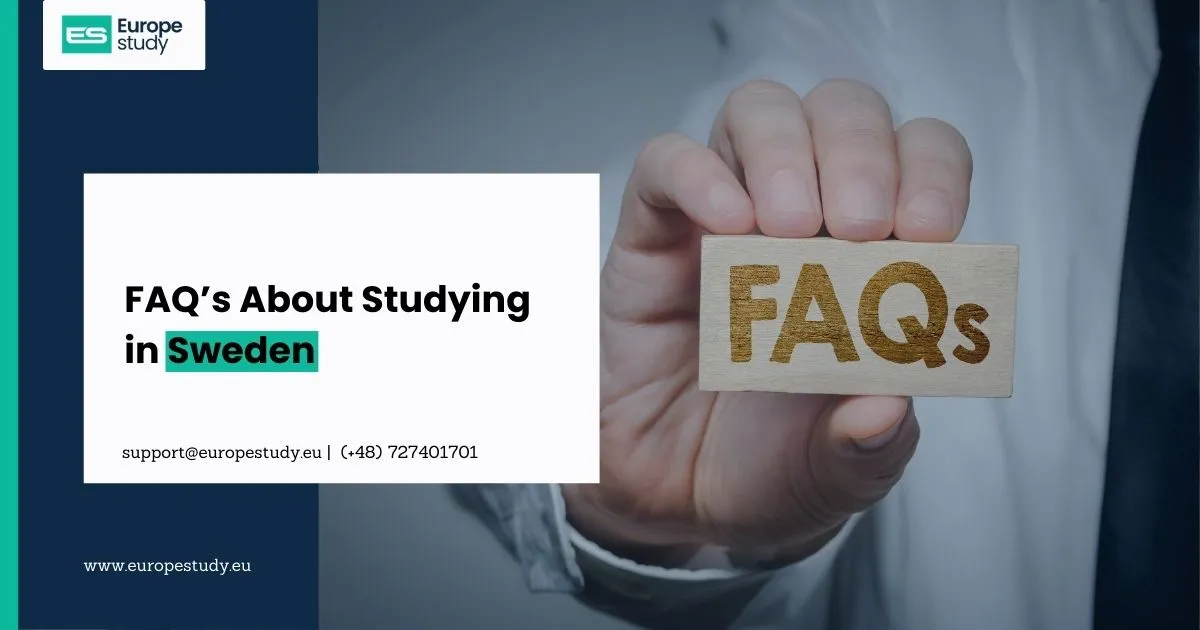
FAQ’s About Studying in Sweden
1. Is education in Sweden free for international students?
Education is tuition-free for EU/EEA and Swiss citizens. However, non-EU/EEA students must pay tuition fees, which usually range from €7,000 to €15,000 per year, depending on the program and university.
2. Are there scholarships available for international students in Sweden?
Yes, Sweden offers multiple scholarship programs for international students, such as:
-
Swedish Institute Scholarships for global professionals.
-
University-specific scholarships (e.g., Lund University, Uppsala University).
-
Erasmus+ programs for exchange students.
3. Can international students work while studying in Sweden?
Yes, international students can work part-time while studying without any work permit restrictions. Most students work 10–20 hours per week during the semester and full-time during holidays.
4. What is the cost of living for students in Sweden?
The average cost of living in Sweden for a student is €700–€1,200 per month, including accommodation, food, transport, and personal expenses. Cities like Stockholm and Gothenburg are more expensive compared to smaller towns.
5. Are programs in Sweden taught in English?
Yes, Sweden offers over 1,000 degree programs in English, including Bachelor’s and Master’s courses in fields like engineering, business, IT, and life sciences.
6. What is the student visa requirement for Sweden?
Non-EU students need to apply for a Swedish residence permit for studies. Requirements include:
-
Admission letter from a Swedish university.
-
Proof of sufficient funds (around SEK 10,314 per month).
-
Health insurance.
7. Can I stay in Sweden after graduation?
Yes, after completing your studies, you can apply for a residence permit to look for a job or start a business for up to 12 months. After securing a job, you can transition to a work permit.
8. What are the top universities in Sweden for international students?
-
Lund University
-
Uppsala University
-
KTH Royal Institute of Technology
-
Chalmers University of Technology
-
Stockholm University
9. When should I apply for admission to Swedish universities?
The main intake is in August (Autumn semester). Applications usually open in October and close in January. A smaller Spring intake (January) is available for some programs.
10. Is IELTS required to study in Sweden?
Yes, most universities require an English proficiency test like IELTS (minimum 6.5) or TOEFL unless you have completed previous education in English.





